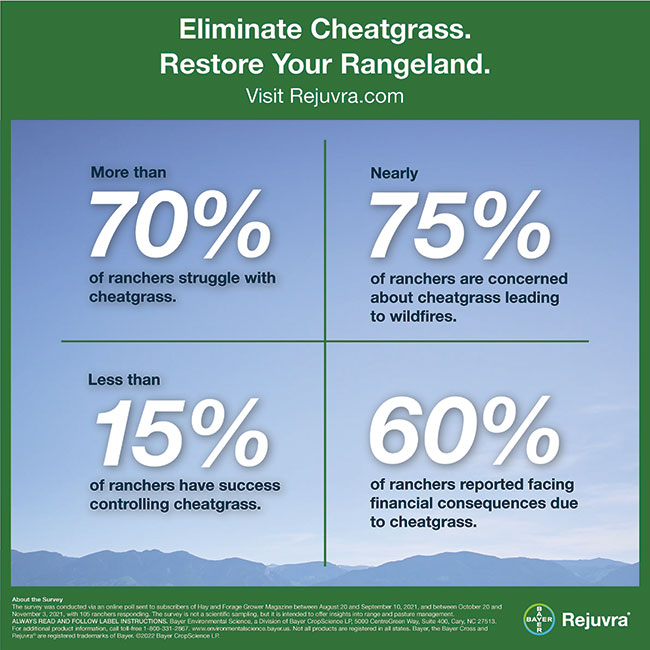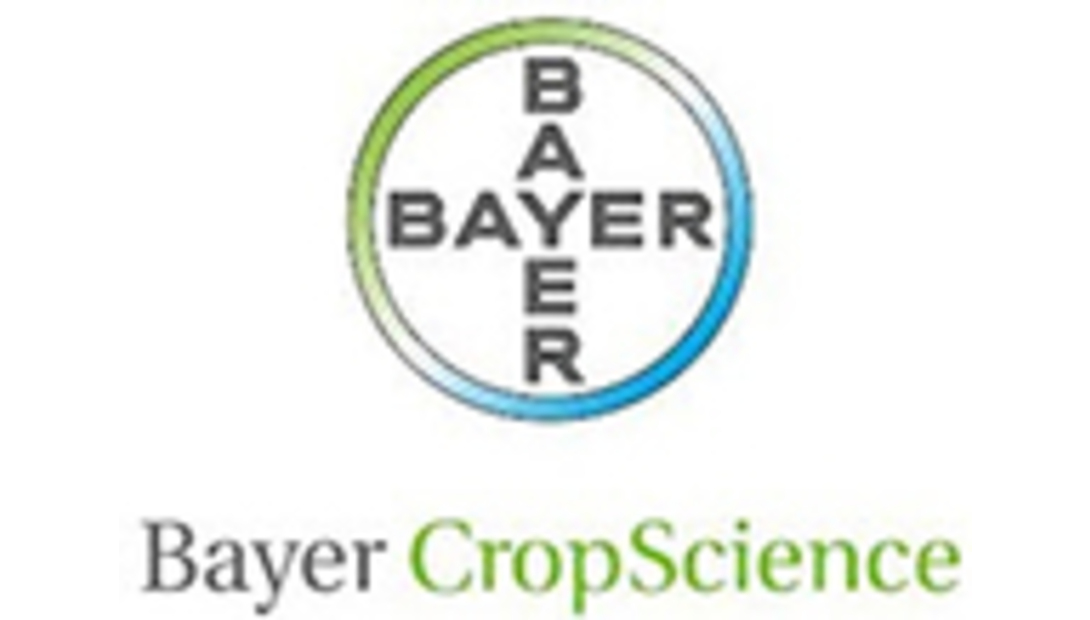Ranchers in the West Struggle to Eliminate Cheatgrass, Showing the Importance of Effective Solutions That Transform Rangeland |
|
|
Bayer Range and Pasture’s first cheatgrass survey finds few ranchers have success reducing or eliminating invasive grasses, which impacts their bottom linesThis item has been supplied by a forage marketer and has not been edited, verified or endorsed by Hay & Forage Grower.  Most ranchers in the West have experienced cheatgrass infestations on their rangeland within the past three years, but only about 15% report high success in reducing or eliminating cheatgrass according to a recent survey. Cheatgrass not only depletes the land’s resources, leading to lower gains on cattle, but it can also be the fuel that ignites and carries wildfires. Bayer Range and Pasture sponsored the survey sent to 105 ranchers in the West. The survey uncovered several key findings about cheatgrass:
“At Bayer Range and Pasture, we understand cheatgrass poses a significant threat to rangeland throughout the West,” said Justin Hossfeld, western range segment manager for Bayer Range and Pasture. “Knowing that few ranchers are reporting high success in reducing or eliminating cheatgrass, Bayer Range and Pasture is pleased to offer Rejuvra® herbicide, a solution proven to eliminate cheatgrass and protect rangeland for up to four years.” Unlike other products, Rejuvra, a preemergent herbicide, attacks cheatgrass with a new approach that breaks the cycle of germination and future seed production. This means that one application offers up to four years of protection. Some real-world trials also showed Rejuvra can offer an up to a 3.5 times increase in production, reduced feed costs of $50-$100 per head and reduced labor costs of $15-$25 per head. In addition to its negative effects on operations, cheatgrass can also be devastating to the environment. It keeps the ecosystem in a constant state of drought, matures early and is very flammable, quickly becoming the fuel that ignites and carries wildfires. Ranchers can fight back by eliminating these invasive grasses. “Rejuvra is a long-term solution unlike any other product on the market,” said Hossfeld. “We are committed to helping more ranchers achieve healthier, more productive rangelands long term.” For more information about Rejuvra herbicide, visit rejuvra.com. About the Survey The survey was conducted via an online poll sent to subscribers of Hay and Forage Grower Magazine between August 20 and September 10, 2021, and between October 20 and November 3, 2021, with 105 ranchers responding. The survey is not a scientific sampling, but it is intended to offer insights into range and pasture management. About Bayer  |
